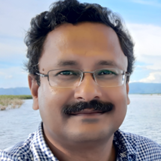Welcome to the latest edition of our Open Science Round-up, curated by Moumita Koley. Join us as she brings you the key reads and news in the world of open science.
In this issue, we feature an editorial by Dr. Haseeb Irfanullah, who shares his impressions of the recent Researcher to Reader Conference (R2R) and the increasing significance of Open Access (OA) and Open Science (OS) in the discussions.
Where do We Stand on Open Access? A Reflection on the R2R Conference 2024
The 2024 edition of the Researcher to Reader Conference (R2R)—an annual gathering of researchers, editors, publishers, publishing service providers, and librarians—was held in London, UK, on 20 and 21 February. As I reflect on drafting this article for the ISC while awaiting my flights to Dhaka, Bangladesh, after attending this conference, I am fascinated, yet not surprised, by how open access (OA) has influenced the discussions at the event.
Let me provide you with some examples. Five parallel workshops were held in three slots—a distinctive format practiced uniquely at the R2R conference. All workshops touched upon open access (OA) and open science (OS) in some capacity. However, those focusing on OA book usage data, on sharing and reusing of research data, and innovations in peer review, delved deeper into discussions on OA/OS.
In total, 16 lightning talks were delivered by a wide range of organizations, with many addressing OA. For instance, De Gruyter, a 275-year Berlin-based publisher, recently announced its five-year plan to transition its journals to OA using the Subscribe to Open (S2O) model (or DG2O).
Similary, the Bloomsbury Open Collections also follows a collective-action S2O-type OA model for books and has been running a pilot project for a year now. Expanding on open access books, the Mellon Foundation supports the OA Book Data Usage Trust, while the OAPEN Foundation explores diversity in bibliography of OA books. The Royal Society of Chemistry (RSC) shared their new community-based, financially sustainable OA model (RSC Platinum consortia model), which is currently being piloted in Germany, as an alternative to the read-and-publish model.
The plenary sessions at R2R showcased the significance of Open Access (OA) – it was as big as it could be. Dr. Kamran Naim, Head of Open Science at CERN (European Organization for Nuclear Research), shared insights into the decade-long journey of SCOAP3 (Sponsoring Consortium for Open Access Publishing in Particle Physics), a collaborative effort involving over 3000 entities. On the other side of the Atlantic, two deans from US universities emphasized the value of transformative agreements (TAs) and other OA strategies within the American scholarly landscape. Their presentations encouraged us to consider whether TAs represent the best path towards an open future.
Dr. Ana Heredia, joining us online from Brazil, highlighted the remarkable progress of Latin America in publishing a significant volume of diamond OA journals (around 90% of total journals) by developing the necessary regional infrastructure. She also noted the heterogeneity in the funding and policy space, and the varying acceptance of diamond OA journals across the scholarly ecosystem. In another session, experts from China, India, and Japan virtually connected with the R2R audience at the BMA House in London, sharing insights into the evolving research and publishing landscape and culture in their respective countries, including discussions on OA/OS.
These presentations from Asia and Latin America underscored the importance of looking beyond the Global North when exploring challenges and opportunities in the OA enterprise.
R2R 2024 provided a snapshot of the current state of OA conversations, highlighting recent successes, failures, and challenges. As we take our OA actions forward, I urge you to see ‘beyond OA’ too, through the lenses of sustainability, justice, and resilience. Watching the recording of a session held at the annual conference of OASPA (Open Access Scholarly Publishing Association) in last September may offer a humble start in that journey.
Dr. Haseeb Irfanullah, Independent Consultant on Environment, Climate Change, and Research System
Dr. Haseeb Irfanullah is a biologist-turned-development facilitator, who describes himself as a research enthusiast. Over the past 24 years, Haseeb has worked with various international environmental and development organizations, academic/research institutions, development partners, and government agencies in various capacities. Currently, he serves as an independent consultant in environment, climate change, and research systems. Additionally, Haseeb holds the position of Visiting Research Fellow at the Center for Sustainable Development (CSD) of the University of Liberal Arts Bangladesh (ULAB) in Dhaka.
You might also be interested in
The Case for Reform of Scientific Publishing
This timely discussion paper sets out priorities for reform in scientific publishing proposed by the International Science Council. It is open for feedback and commentaries from the global scientific community.
Big stories in Open Science
Reformscape: Revolutionizing Academic Career Assessment Globally
- The San Francisco Declaration on Research Assessment (DORA) introduces Reformscape, an innovative online platform designed to transform academic hiring, promotion, and tenure processes into fairer, more robust, and diverse evaluations. This free resource compiles hundreds of examples from over 200 institutions worldwide, showcasing successful strategies for more equitable academic career assessments. Reformscape invites the academic community to explore, share, and implement these pioneering approaches, marking a significant step towards inclusive and fair academic evaluations.
Economics Journal Editorial Board Resigns Over Quality Concerns
- Over 30 editors and advisors of the Journal of Economic Surveys resigned, citing Wiley’s emphasis on growth and quantity over quality as reasons, which they feared would lead to poor-quality science, reported in Retraction Watch. Despite Wiley’s assurance of no open access publishing targets and a modest proposal to increase publication output, the resigning editors expressed concerns over the publisher’s direction. This incident adds to the growing instances of editorial boards clashing with for-profit journal publishers over editorial and publishing practices.
French Ministry of Higher Education and Research Teams Up with OpenAlex for Open Science Initiative
- The French Ministry of Higher Education and Research has forged a long-term partnership with OpenAlex, a fully open bibliographic database, as part of the Second National Plan for Open Science. OpenAlex, with its extensive indexing of scientific works, authors, institutions, and funders, relies on open data and cutting-edge technologies to foster a global open science landscape. Through financial support and data enrichment efforts, France aims to bolster OpenAlex’s capacity and contribute to the advancement of open access and transparency in scholarly knowledge on both national and international fronts.
eLife Forms Global South Committee to Enhance Open Science and Equity in Publishing
- eLife has announced the formation of the Global South Committee for Open Science, aiming to foster equitable collaboration and inclusion within scientific publishing by drawing insights from peers in the Global South. This initiative addresses the underrepresentation of researchers from economically disadvantaged regions, aiming to make the publishing process more inclusive and give authors greater control. The committee, comprising 10 advocates from diverse regions including Africa, Asia, and Latin America, will guide eLife in amplifying Global South researchers’ voices and expanding support and outreach, marking a significant step towards a more equitable scientific community.
Bulgaria Adopts Secondary Publishing Right for Academic Freedom
- Bulgaria has introduced a significant amendment to its Copyright and Neighboring Rights Act, establishing a zero-embargo Secondary Publishing Right (SPR) effective from December 1, 2023. This new mandate empowers academic authors, particularly those funded publicly, to republish their works for non-commercial purposes immediately after acceptance by publishers, aiming to enhance open access and address the constraints posed by traditional publishing models. This reform, setting a precedent in promoting equitable access to scholarly literature, necessitates further alignment with copyright laws and open science practices, marking a pivotal moment for academic publishing and copyright legislation in Bulgaria.
Leading Physics Publishers Unite for Purpose-Led Publishing Coalition
- AIP Publishing, the American Physical Society, and IOP Publishing have established the Purpose-Led Publishing (PLP) coalition, committing to prioritizing purpose over profit in scholarly communications. This not-for-profit alliance dedicates 100% of its funds to supporting the global physical science community through initiatives to enhance accessibility, inclusivity, and ethical standards in science publishing. By adopting industry standards, PLP ensures the integrity and quality of scientific contributions, reinforcing its commitment to advancing scientific knowledge and community well-being without compromising its not-for-profit status.
Relx Reports 10% Surge in Profits for 2023, Driven by Information-based Analytics and Decision Tools
- RELX, the parent company of Elsevier, announced a remarkable 10% increase in profits for 2023, reaching £1.79 billion in net profit on £9.16 billion in revenue. The growth is attributed to the company’s strategic shift towards higher-growth information-based analytics and decision tools, fuelled by advancements in artificial intelligence and technology, while the scientific, technical, and medical unit, including Elsevier, demonstrated a 6% rise in adjusted operating profit amidst ongoing debates about scholarly publishing payment models.
RSC and TIB Launch Groundbreaking Platinum Open Access Model in Germany
- The Royal Society of Chemistry (RSC) and the TIB – Leibniz Information Centre for Science and Technology have initiated a pioneering four-year Platinum open access agreement, offering unlimited publishing services to 77 German research institutions at no cost. This consortium model, open to all academic and research institutions regardless of their publishing activity, ensures that under a renewal of the agreement from 2028, all content will be fully open access, enabling authors from participating institutions to publish without facing any charges. This innovative model, which now includes 77 institutions, marks a significant advancement from the previous consortium, aiming to distribute publication costs more equitably and potentially serving as a blueprint for future international agreements.
ACS Expands Open Access in Latin America with New Read and Publish Agreements
- The American Chemical Society (ACS) has announced five new read and publish agreements, significantly enhancing access to its journals for researchers in Latin America and allowing affiliated authors to publish open access at no cost. Covering four institutions in Mexico and one in Colombia, these agreements mark a significant step towards the expansion of hybrid journal models. These institutions are now part of the growing list of over 1000 institutions who signed Read and Publish agreements with ACS.
NSF’s GRANTED Initiative to Transform Equity and Diversity in National Research
- The U.S. National Science Foundation announces a $20 million investment in its Growing Research Access for Nationally Transformative Equity and Diversity (GRANTED) initiative, aiming to reduce barriers to research access. Within the research community, organizations encounter diverse challenges in accessing support and infrastructure services for research. These challenges hinder broad participation in national research initiatives. Contrary to conventional scientific research or education funding, GRANTED seeks to strengthen the research infrastructure within institutions and throughout the country.
Open Science events and opportunities
Job opportunities
Our top ten Open Science reads
Disclaimer
The information, opinions and recommendations presented by our guests are those of the individual contributors, and do not necessarily reflect the values and beliefs of the International Science Council.
Image by Christopher Burns on Unsplash.



